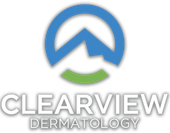How to Tell the Difference Between Eczema, Psoriasis, and Rosacea
Ever looked in the mirror and wondered, "What's going on with my skin?" You're definitely not alone. Three of the most common skin conditions that often get mixed up are eczema, psoriasis, and rosacea. While they might look similar at first glance, each one has its own personality—and knowing the difference can help you get the right treatment faster.
Key Points:
- Eczema typically appears as red, itchy patches that can weep or crust over, commonly affecting areas like elbows, knees, and face
- Psoriasis shows up as thick, silvery-white scales on raised red patches, often on elbows, knees, scalp, and lower back
- Rosacea primarily affects the face with persistent redness, visible blood vessels, and sometimes bumps that look like acne
- Location, appearance, and triggers vary significantly between these three conditions
- Professional diagnosis from a dermatologist is essential for proper treatment
- Each condition requires different treatment approaches and lifestyle modifications
What Makes These Skin Conditions So Confusing?
Here's the thing—eczema, psoriasis, and rosacea can all cause redness, irritation, and general skin drama. But once you know what to look for, telling them apart becomes much easier. Think of it like learning to distinguish between different dog breeds—they're all dogs, but a Golden Retriever definitely doesn't look like a Chihuahua once you know the differences!
Eczema: The Itchy Troublemaker
What Does Eczema Look Like?
Eczema (also called atopic dermatitis) is like that friend who just can't sit still. It's incredibly itchy and tends to show up as:
- Red, inflamed patches of skin
- Dry, scaly areas that might crack
- Small bumps that can leak fluid when scratched
- Thick, leathery skin from constant scratching
Where Does Eczema Like to Hang Out?
Eczema has favorite spots, especially:
- Inside of elbows and behind knees
- Hands, feet, and ankles
- Face and neck (particularly in babies and young kids)
- Around the eyes and lips
What Triggers Eczema?
Eczema gets cranky about:
- Dry weather or sudden temperature changes
- Certain soaps, detergents, or fabrics
- Stress (because our skin apparently holds grudges)
- Allergens like dust mites or pet dander
- Certain foods (though this varies from person to person)
Psoriasis: The Scaly Showoff
What Does Psoriasis Look Like?
Psoriasis is the overachiever of skin conditions—it produces skin cells way too fast, creating:
- Thick, raised red patches covered with silvery-white scales
- Well-defined borders (unlike eczema's fuzzy edges)
- Patches that might crack and bleed
- Sometimes small, drop-like spots (especially in kids)
Where Does Psoriasis Prefer to Appear?
Psoriasis tends to be predictable about location:
- Elbows and knees (the outer sides, unlike eczema)
- Scalp and hairline
- Lower back
- Palms and soles of feet
- Nails (causing pitting or separation)
What Sets Off Psoriasis?
Psoriasis flare-ups often happen due to:
- Stress or emotional trauma
- Infections (especially strep throat)
- Certain medications
- Skin injuries or sunburn
- Cold, dry weather
Rosacea: The Face-Focused Friend
What Does Rosacea Look Like?
Rosacea is all about the face and tends to be more subtle than its cousins:
- Persistent redness across the cheeks, nose, chin, or forehead
- Visible blood vessels (like tiny red spider webs)
- Bumps and pimples that look like acne but aren't
- Burning or stinging sensations
- Eye irritation in some cases
Where Does Rosacea Show Up?
Rosacea is pretty much a face-only condition:
- Central face (cheeks, nose, chin, forehead)
- Around the eyes (causing dryness and irritation)
- Rarely appears on other parts of the body
What Triggers Rosacea?
Rosacea has some specific pet peeves:
- Hot beverages and spicy foods
- Sun exposure
- Alcohol (especially red wine)
- Extreme temperatures
- Certain skincare products
- Stress and strong emotions
Side-by-Side Comparison: Spotting the Differences
Appearance
- Eczema: Red, weepy, crusty patches with fuzzy borders
- Psoriasis: Thick, scaly plaques with clear edges and silvery scales
- Rosacea: Persistent facial redness with visible blood vessels
Location
- Eczema: Elbow creases, knee backs, hands, face
- Psoriasis: Outer elbows/knees, scalp, lower back
- Rosacea: Central face, especially cheeks and nose
Itch Factor
- Eczema: Extremely itchy (the "itch that rashes")
- Psoriasis: Mildly itchy, more likely to be sore
- Rosacea: Burning or stinging rather than itchy
When to See a Dermatologist
While it's tempting to play skin detective, some situations definitely
call for professional help:
- Your skin condition is getting worse despite home care
- You're losing sleep due to itching or discomfort
- The condition is affecting your daily life or self-confidence
- You're not sure what you're dealing with
- Over-the-counter treatments aren't helping after a few weeks
Dr. Joe Overman at Clearview Dermatology can properly diagnose your condition and create a treatment plan that actually works for your specific situation.
Treatment Approaches: One Size Doesn't Fit All
Eczema Treatment
- Gentle, fragrance-free moisturizers (lots of them!)
- Topical corticosteroids for flare-ups
- Antihistamines for itching
- Identifying and avoiding triggers
Psoriasis Treatment
- Topical treatments like corticosteroids or vitamin D analogs
- Light therapy
- Systemic medications for severe cases
- Moisturizers to manage scaling
Rosacea Treatment
- Gentle skincare routine
- Topical antibiotics or anti-inflammatory creams
- Oral medications for severe cases
- Strict sun protection
- Trigger avoidance
Living with Skin Conditions: You've Got This!
Having eczema, psoriasis, or rosacea doesn't mean you're stuck with problem skin forever. With the right diagnosis and treatment plan, most people can manage their symptoms effectively and feel confident in their skin again.
The key is being patient with the process and working with a dermatologist who understands your specific needs. What works for your friend might not work for you, and that's totally normal.
Ready to Get Answers About Your Skin?
If you're tired of playing the guessing game with your skin, it's time to get some expert help. Dr. Joe Overman and the team at Clearview Dermatology are here to help you figure out exactly what's going on and create a treatment plan that fits your life.
Contact Clearview Dermatology today:
- Candelas Location: 720-797-9184 | 14789 W. 87th Parkway, Arvada, CO 80005
- Bergen Park Location: 720-694-8550 | 32135 Castle Court, Ste 202 Evergreen, CO 80439
- Dakota Ridge Location: 720-909-8154 | 13402 W Coal Mine Ave, Ste 360 Littleton, CO 80127
Visit us at www.clearviewdermatology.com to learn more about our services and schedule your appointment.
FAQs About Eczema, Psoriasis, and Rosacea
Can you have more than one of these conditions at the same time?
Yes, it's possible to have multiple skin conditions simultaneously. For example, someone might have both eczema and rosacea, though this is less common. A dermatologist can help identify if you're dealing with one condition or multiple issues.
Are these conditions contagious?
No, eczema, psoriasis, and rosacea are not contagious. You can't catch them from someone else or spread them to others through contact.
Do these conditions get worse with age?
It varies by condition and individual. Eczema often improves with age, especially childhood eczema. Psoriasis can fluctuate throughout life, and rosacea may gradually worsen if left untreated.
Can diet affect these skin conditions?
Diet can play a role, especially with eczema and rosacea. Common triggers include spicy foods, alcohol, and certain allergens. However, dietary triggers are highly individual, so what affects one person might not affect another.
Is it safe to use over-the-counter treatments?
Gentle, fragrance-free moisturizers are generally safe for all three conditions. However, it's best to consult with a dermatologist before trying medicated over-the-counter treatments, as some products might irritate certain conditions.
How long does it take to see improvement with treatment?
This depends on the condition and treatment type. Some topical treatments might show results in a few days to weeks, while others may take several months. Consistency with treatment is key.
Can stress really trigger skin flare-ups?
Absolutely! Stress is a common trigger for all three conditions. Managing stress through relaxation techniques, exercise, or counseling can help reduce flare-ups.
Are there any natural remedies that work?
Some people find relief with natural approaches like oatmeal baths for eczema or green tea compresses for rosacea. However, natural doesn't always mean safe or effective, so it's important to discuss these options with your dermatologist.
FAQs About Clearview Dermatology
What services does Clearview Dermatology offer?
Clearview Dermatology provides comprehensive dermatological care including diagnosis and treatment of eczema, psoriasis, rosacea, acne, skin cancer screening, cosmetic procedures, and general dermatology services.
How do I schedule an appointment?
You can schedule an appointment by calling any of our three locations or visiting our website at www.clearviewdermatology.com. We offer convenient scheduling options to fit your busy lifestyle.
Does Dr. Joe Overman accept insurance?
Most major insurance plans are accepted. We recommend calling your specific location to verify coverage before your appointment.
What should I bring to my first appointment?
Please bring a valid ID, insurance card, list of current medications, and any relevant medical history. If you have photos of your skin condition at different stages, those can be helpful too.
How long are typical appointments?
Initial consultations typically last 30-45 minutes, while follow-up appointments are usually 15-30 minutes. Complex cases may require longer appointments.
Do you offer same-day appointments for urgent skin concerns?
We try to accommodate urgent skin concerns as quickly as possible. Call your preferred location to discuss availability for urgent situations.
What makes Clearview Dermatology different from other practices?
Dr. Joe Overman brings extensive experience and a patient-focused approach to dermatological care. We combine the latest treatments with personalized care, ensuring each patient receives treatment tailored to their specific needs and lifestyle.
Disclaimer: The information provided on this blog is for general informational purposes only and is not intended as, and should not be considered, medical advice. All information, content, and material available on this blog are for general informational purposes only. Readers are advised to consult with a qualified healthcare professional for medical advice, diagnosis, or treatment. The author and the blog disclaim any liability for the decisions you make based on the information provided. Always seek the advice of your physician or other qualified health provider with any questions you may have regarding a medical condition.





